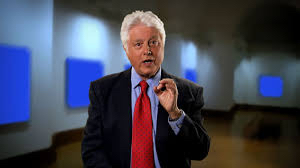Life Lessons from John McCain featuring Bill Halamandaris presented by Gracefully-Yours.com greeting cards and journals. Do the ends justify the means? I have lived in Washington for more than 50 years. I have never seen a time like this. The question of ends and means comes up daily:Nicolo Machiavelli was the first to raise the issue of ends and means in a political context in his treatise, The Prince, published in 1513. Machiavelli said a good leader – The Prince – should choose the most effective means to his ends, be they harmless or cruel and violent. For him, the only thing that mattered was the outcome.In this context, John McCain’s legacy looms large. He is being remembered for his humor, humility, and courage. But he represents more than that.John McCain knew who he was. He stood on principle, even when it did not advance his political position; and openly admitted and regretted the times he strayed from principal for political expediency. McCain’s values were hardened in the crucible of a Vietnamese prisoner of war camp. There he was tested like few others. He had ample time – much of it in solitary confinement – to consider what he was living for, what he would die for, who he was, and who he wanted to be. McCain came to understand that the end that matters most is not so much the goal we want to achieve but how we achieve what we achieve, and what we become in the process.That’s how John McCain will likely be remembered. Not so much for what he said, but what he did and how he lived. He knew the means are the ends. McCain crossed over. He chose to be a statesman rather than a politician by devoting his life to a cause greater than himself. History will remember – as I have told my son – “That’s what a hero looks like.”
Stay Current with Success Tips
Join our subscribers and receive one email per week, with exclusive tips and musings directly from your Success Made to Last team.

Stewart Emery is a guru of enduring success, studying the great minds of masters. You will become a better version of your self through Stewart’s thought provoking interviews. Remember this…live experientially and your life will become richer.
2023 Success Shows
- Authors Riff About Enduring Success: 28
- CEO in 10 BEST VERSION leadership: 24
- Design Leadership: 15
- Entertainers Who Think Differently: 24
- Young Disruptive Leaders: 10
- Legends- World’s Best Versions: 12
- 3 Degrees (People Who Know People): 6
- Travel Focused on 5 Senses: 7
- Sports Legends: 7
- Internationalist Trendsetter-14
- Country Stars and Songwriters-21
Corporate Series:4



